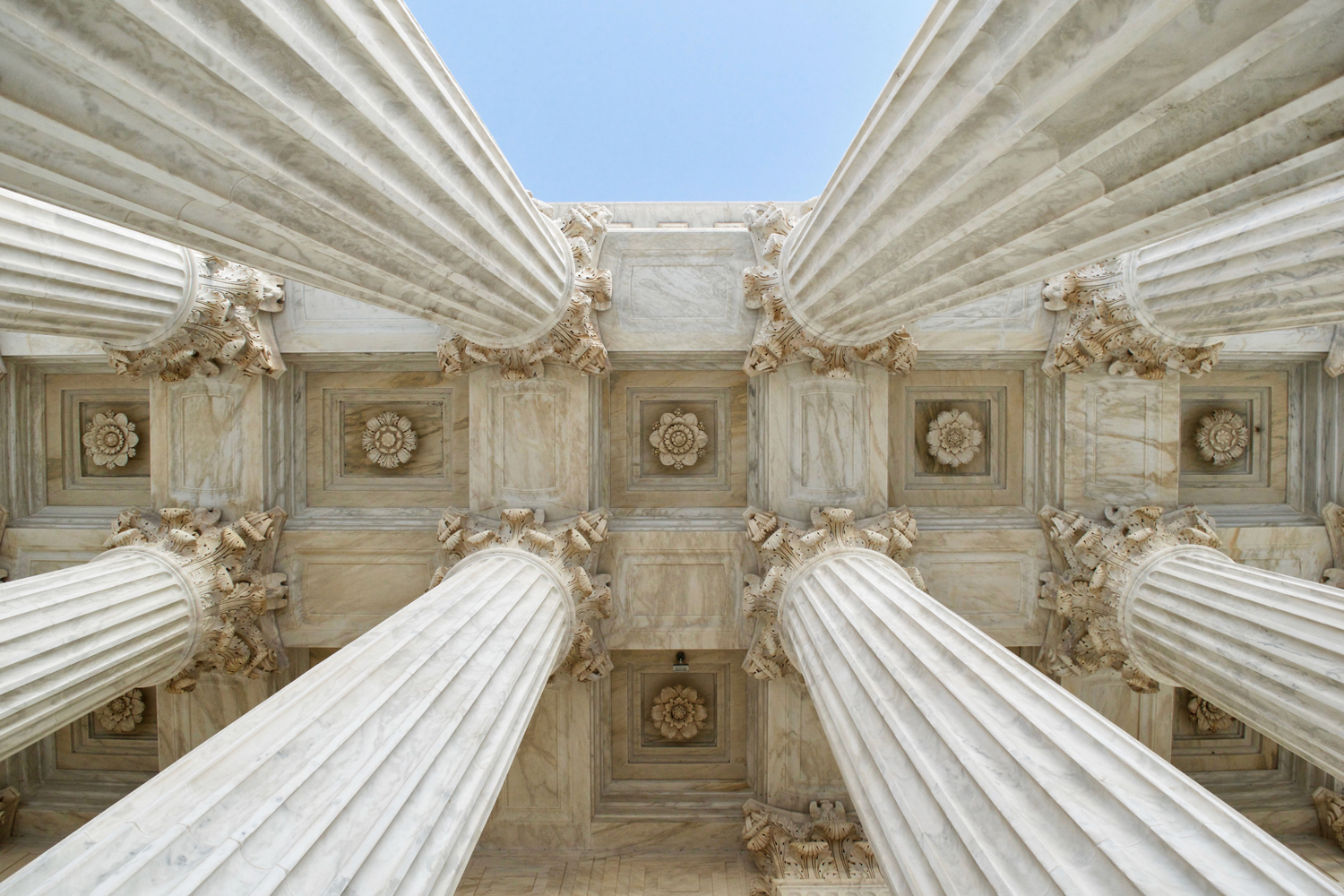
The Freedom From Religion Foundation is pleased that a major new poll shows more than half of Americans support the expansion of the number of justices on the U.S. Supreme Court.
The results of the latest Marquette University Law School poll indicate that 51 percent favor court expansion, which notably contrasts with the 56 percent who opposed court reform last year. This is a clear indication that respondents are taking note of the more polarized — and more extremist — Supreme Court.
“This exciting shift showing majority support for court reform indicates a recognition by the American public that our civil rights are in danger, given recent decisions by the extremist supermajority,” says Annie Laurie Gaylor, FFRF co-president. Gaylor added that President Biden and most elected officials who are shying away from court reform should take heed.
The waning public confidence and a recognition of a negative ideological shift in the nation’s highest court is reflected by the solid 60 percent who “disapprove” of the way the Supreme Court is handling its job. Sixty-four percent of respondents in the September poll indicate they view the court as having a “conservative” or “somewhat conservative” ideology, up from 51 percent from a poll conducted in May.
FFRF has long maintained that the dramatic shift in the court’s ideology is out of touch with the views of the majority of Americans and that, with a third of Supreme Court justices nominated by President Trump, the high court has been captured by Christian nationalists. Evangelical extremists, such as Family Research Council President Tony Perkins, have not been shy about offering praise to Trump for packing the high court with religious radicals.
Court expansion is not only long overdue as a corrective, it also follows historic precedent. The Judiciary Act of 1789 originally set the number of seats on the Supreme Court to six. However, the court has been expanded a number of times since then. The current court sits at nine justices mirroring the number of federal courts of appeals at the time of the last expansion. The number of federal courts of appeals has since increased to 13, so logic dictates that the number of seats on the U.S. Supreme Court should follow. FFRF supports the Judiciary Act of 2021, which would increase the number of Supreme Court justices from nine to 13.
FFRF also considers court expansion as the only way to redress the injustice of two stolen seats under then-Senate Majority Leader Mitch McConnell. McConnell denied a hearing of President Obama’s Supreme Court nominee Merrick Garland under the spurious excuse that it was a presidential election year in 2016, then rushed onto the court Amy Coney Barrett in the midst of the 2020 national election.
FFRF is also urging the passage of the Supreme Court Ethics, Recusal, and Transparency (SCERT) Act. So far, 60 lawmakers have co-sponsored the legislation, which would require Supreme Court justices to “adopt and follow a code of ethics, places transparency standards on gifts and travel, codifies recusal standards and requires the court to disclose lobbying and dark money interests before it.” This common-sense piece of legislation would help restore some public trust of the court.
Additional results of interest from the poll include that 61 percent oppose the Supreme Court’s Dobbs v. Jackson decision to overturn Roe v. Wade. This number is more than double the number who support the court’s decision.
The poll shows overwhelming support to allow abortion in cases of rape and incest (90 percent) and overwhelming opposition (82 percent) to a state making it illegal for a woman to travel across state lines for legal abortion care. Likewise, respondents in significant numbers (76 percent) oppose state laws to ban medication abortion or to allow pharmacists to refuse to fill such prescriptions.
A tad over 70 percent support the 2015 Supreme Court’s decision in Obergefell v. Hodges affirming marriage equality, a ruling put in jeopardy by the majority opinion in Dobbs. Justice Clarence Thomas, now empowered by an ultraconservative majority, has openly urged that the right to marriage equality also be decided by each state.
FFRF is also pleased to see that more than half (52 percent) of respondents seldom or never report attending religious church services, and that 31 percent say they have “no religion.” Most (73 percent) do not identify as “born-again” or evangelical Christians.
The Freedom From Religion Foundation will continue to advocate for an independent federal judiciary that will uphold the constitutional principle of separation of state and church, and is gratified to see that the majority of the public is with us on the need to expand the high court.
The latest Marquette Law Poll Supreme Court survey was conducted Sept. 7-14, 2022, interviewing 1,448 adults nationwide and has a margin of error of plus/minus 3.4 percentage points.